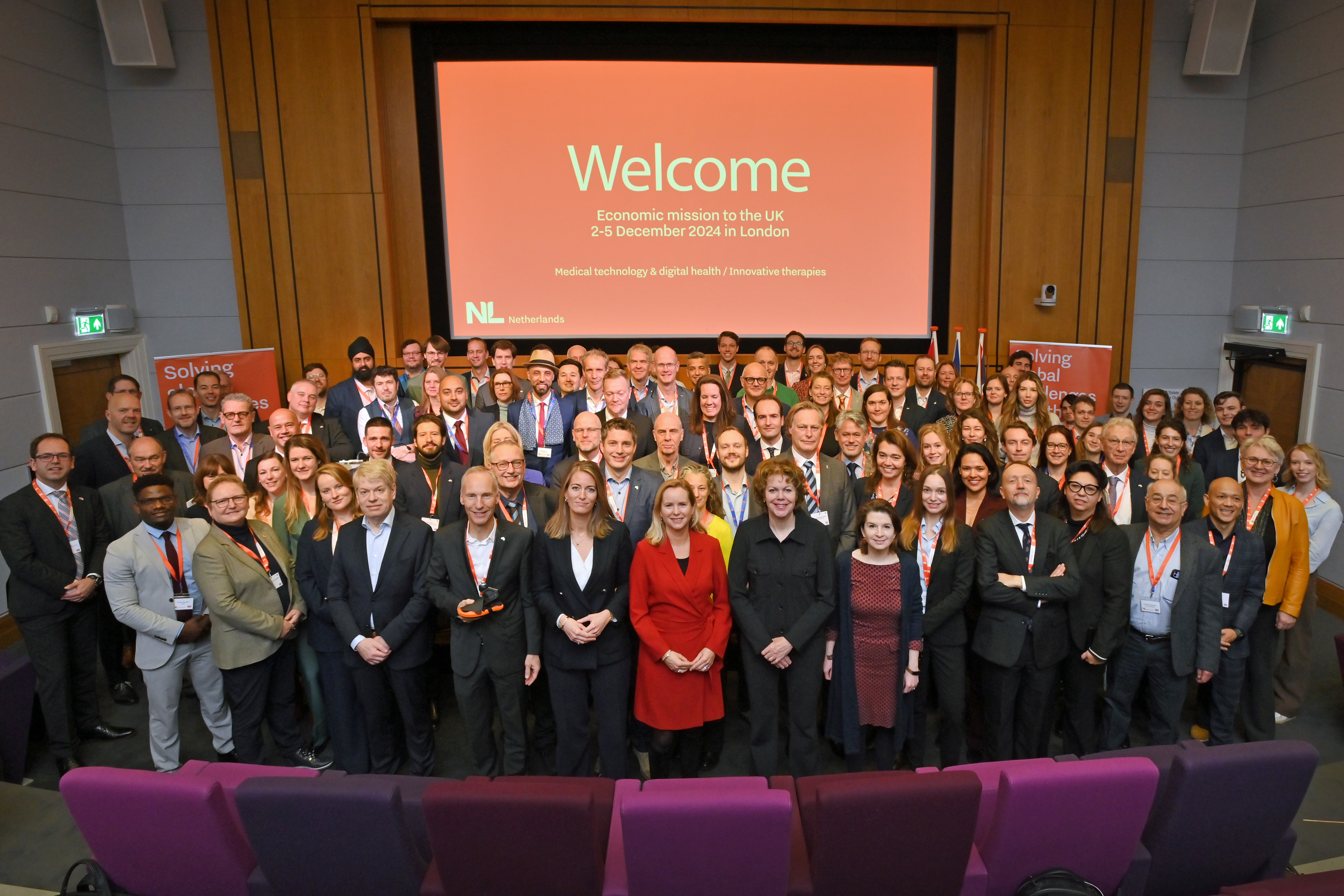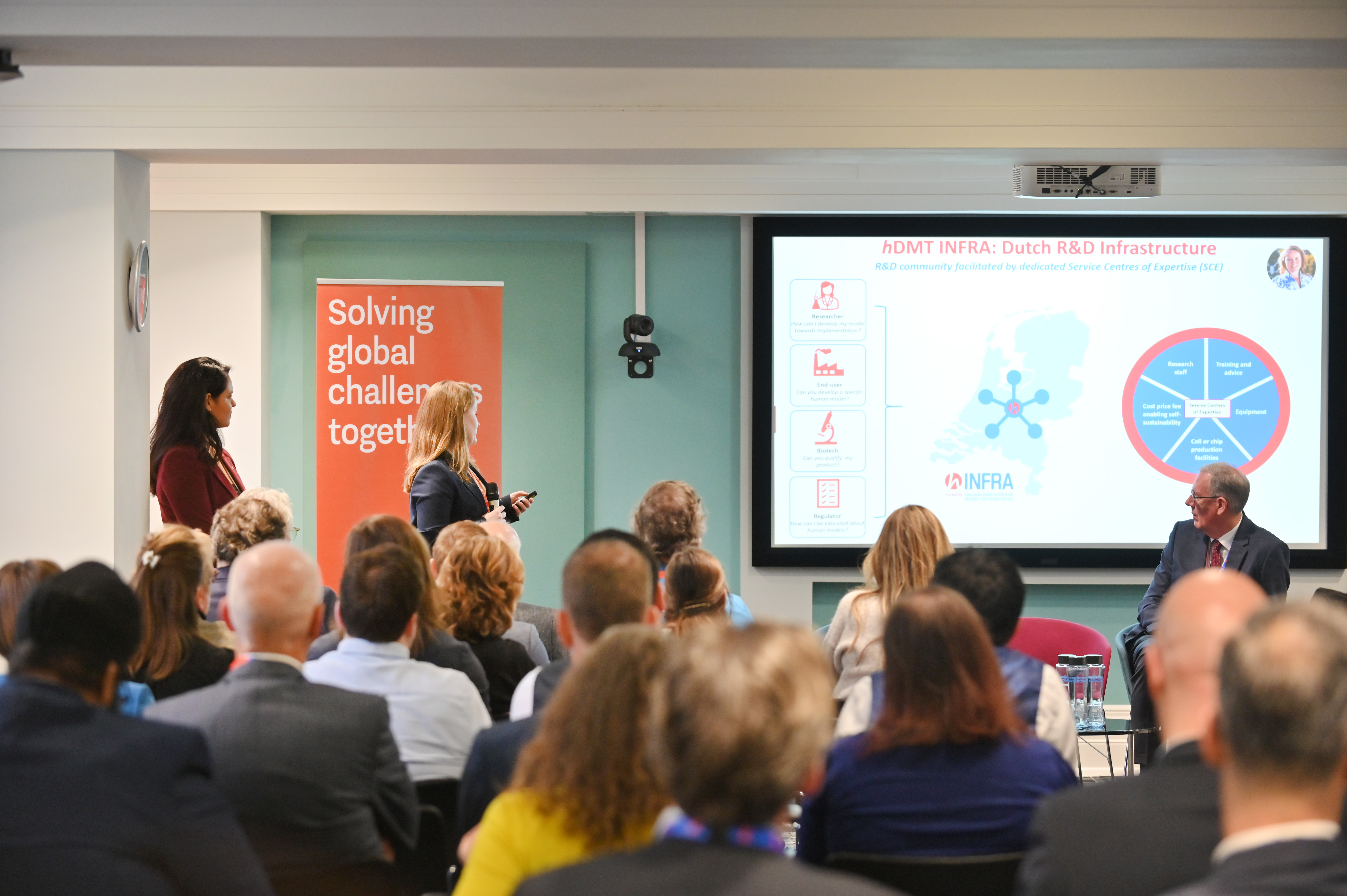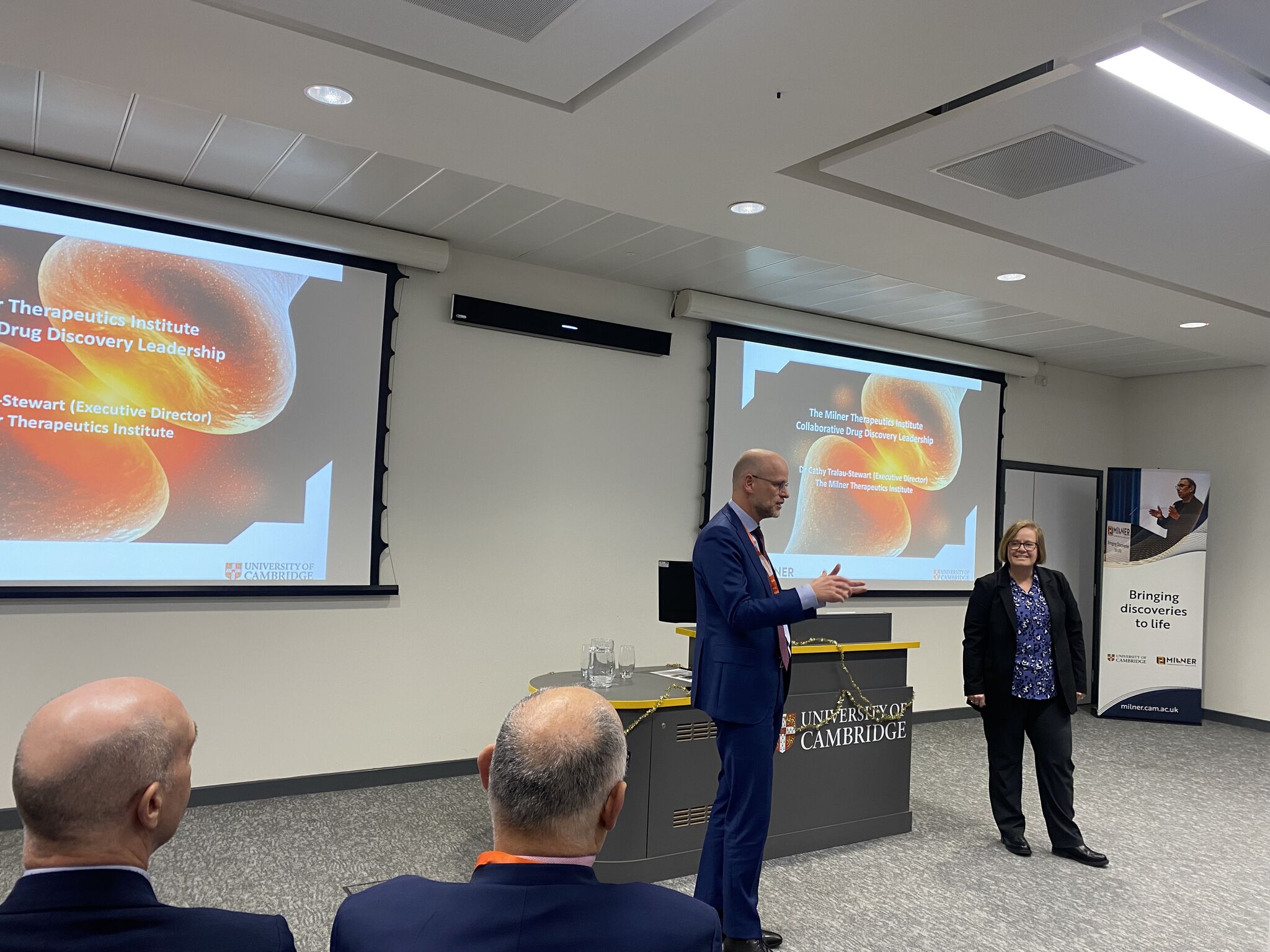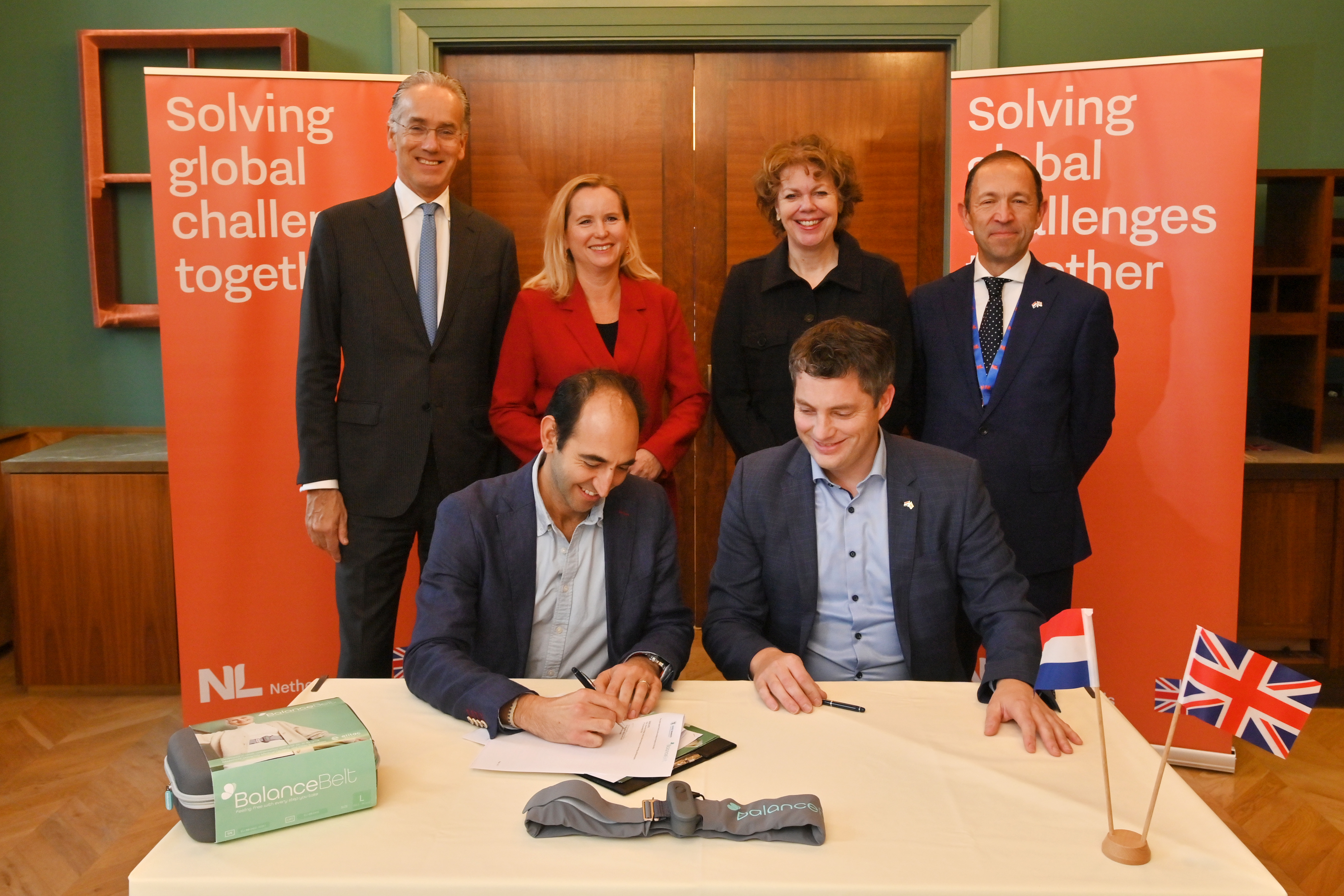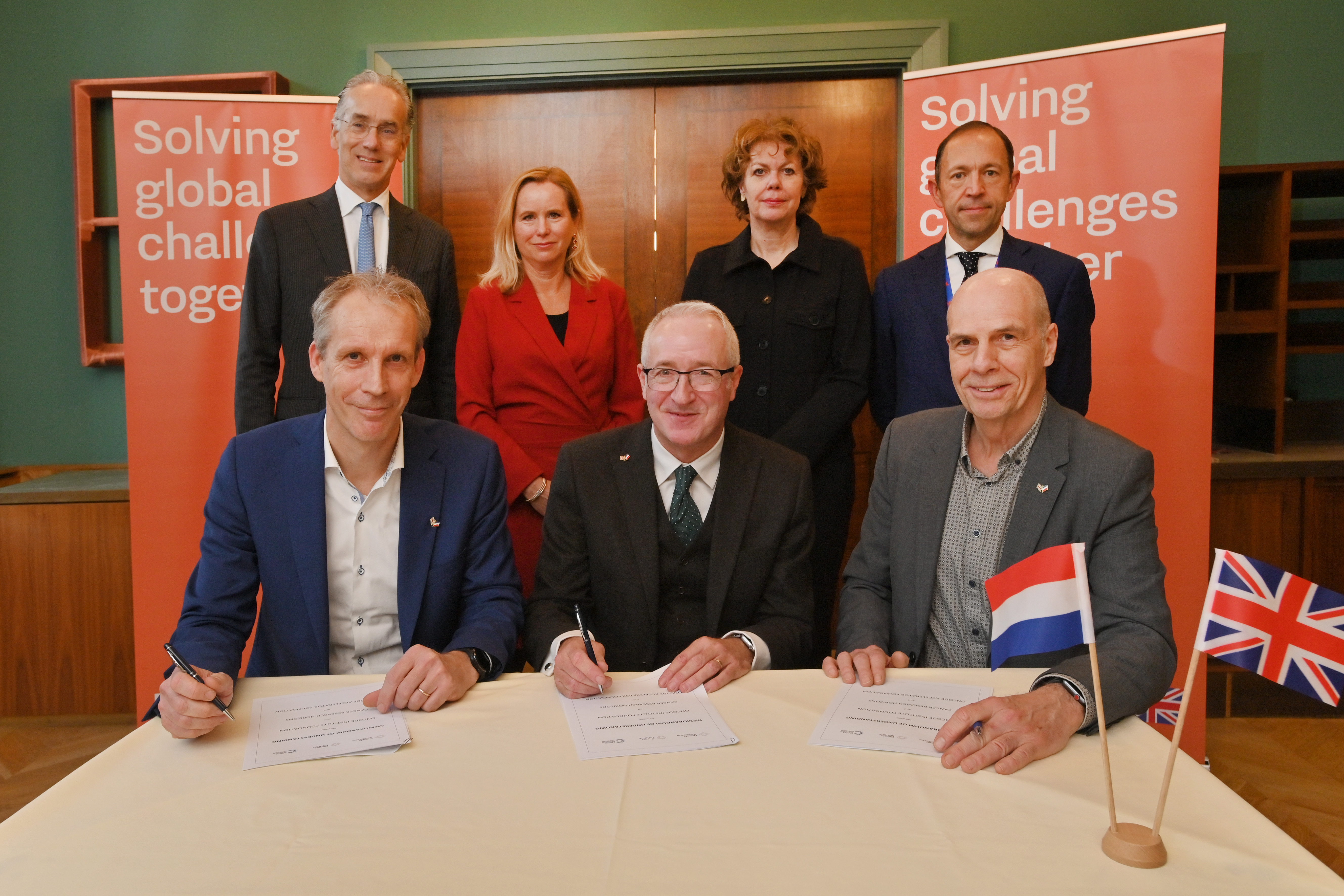Life Sciences & Health Economic Mission to the UK - United Kingdom
Life Sciences & Health Economic Mission to the UK
From 2-5 December 2024, an economic mission to the United Kingdom focused on Life Sciences & Health (LSH). Led by the Minister for Foreign Trade and Development Reinette Klever and accompanied by VNO-NCW (Confederation of Netherlands Industry and Employers) chair Ingrid Thijssen, 33 Dutch organisations participated in the mission. The delegation of 53 participants engaged in two sector programs: Medical Technologies & Digital Healthcare and Innovative Therapies.
Shared Challenges and Opportunities between the Netherlands and the UK
Both countries face similar challenges in healthcare, such as ageing populations, rising healthcare costs, staff shortages, and an increase in chronic diseases. The Netherlands and the UK also have complementary (research) ecosystems. The UK boasts a strong research landscape with large hospitals, a centrally organised healthcare system (NHS), and excellent collaborations with top universities.
Sector Program: Medical Technologies & Digital Healthcare
The sector program focused on technologies that improve the efficiency of healthcare processes. It included sessions on the UK healthcare landscape, market access, and successful startups in the British healthcare sector. The delegation discussed bringing impactful innovations to the UK market and explored optimal strategies for introducing innovations into the British healthcare system.
The delegation visited the London Institute for
Healthcare Engineering (LIHE), part of King’s College London’s
School of Biomedical Engineering & Imaging Sciences. This
leading partnership focuses on the development and application of
new medical technologies within healthcare. By working with academic
institutions, healthcare providers, and industrial partners, the
institute facilitates the implementation of scientific discoveries
into practical healthcare solutions.
Presentations were given by key public and private
sector players in the UK healthcare system. The program also
allowed Dutch companies to present their advanced solutions and
services. These included tools for elderly care and daily
assistance, support for medical procedures, and digital solutions
for data management, consultancy, and financial support.
Sector Program: Innovative Therapies
This program highlighted the fields of cell and gene therapy, regenerative medicine, and Organ-on-Chip technologies. These therapies aim to develop groundbreaking treatments using living cells and tissues to repair, replace, or regenerate damaged tissue and organs.
The delegation visited the Cell and Gene
Therapy Catapult in Stevenage. This cluster features the
Manufacturing Innovation Centre for cell and gene therapy, equipped
with 12 cleanrooms, quality control laboratories, technology, and
process innovation labs, and a skills and training facility. It serves
as a hub for the development and production of advanced cell and gene therapies.
The delegation also travelled to the Cambridge Biomedical
Campus, one of the largest and most prominent biomedical clusters
in Europe. Here, they visited the Milner Therapeutics Institute, an
institute linked to the University of Cambridge that aims to
accelerate the development and scaling up of new therapies. By
fostering collaboration between academic research, the pharmaceutical
industry, and biotechnology companies of various sizes, the institute
creates a unique public-private partnership model that could serve as
an inspiration for the Dutch ecosystem.
Additionally, the delegation visited AstraZeneca's
Discovery Centre (DISC), a major research and development site
focused on discovering new, innovative medicines and therapies.
Throughout the sector program, there was ample opportunity
for discussions and knowledge exchange on shared challenges, such as
the translation of innovative therapies into practice, the design of
cost-effective production and infrastructure, and synergies between
the Dutch and British Organ-on-Chip ecosystems. Dutch companies were
also allowed to pitch their offerings to a UK-Dutch audience.
Two MoUs signed!
During the mission, two Memoranda of Understanding (MoUs) were signed.
The first MoU was established between Dutch company BalanceBelt and the UK’s National Hospital for Neurology and Neurosurgery (UCL’s Department of Clinical and Movement Sciences, Sense Research Unit). This partnership focuses on validating and implementing the BalanceBelt within the NHS. The BalanceBelt is an intelligent device that helps people with vestibular loss restore their balance.
The second MoU concerns a tripartite collaboration
between the Dutch Oncode Institute, Oncode Accelerator, and the
UK’s Cancer Research Horizons (the innovation arm of Cancer Research
UK). This agreement aims to combine strengths to accelerate
early-stage breakthroughs in oncology. Read the press releases here
and here.
Concrete Results
The mission contributed to a better understanding of the challenges and opportunities within the UK market. For the Dutch participants, this meant new business leads and collaboration opportunities and the potential for new contracts.
The mission’s success highlights the complementary nature of the UK and Dutch LSH ecosystems and how collaboration in MedTech and innovative therapies can contribute to the future of healthcare in both countries.

